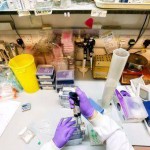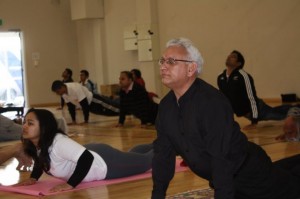Category: Health
-

UK public health urged to support vegan food
•
The vouchers available to buy milk and animal-based vitamin D supplements should be extended to vegan food, says Vegan Society of UK. Currently, under the Healthy Start scheme of NHS UK, the vouchers cannot be used for buying plant milk and there are no vegan-friendly vitamin D supplements available. Dr…
-

Unilever buys The Vegetarian Butcher
•
Unilever is acquiring The Vegetarian Butcher, so as to expand its portfolio into plant-based foods that are healthier and have a lower environmental impact, according to a statement from the FMCG giant. It is no surprise that the multinational firm is interested in a vegetarian business, as the trend among…
-
NZ doctors putting patients at risk
•
Mistakes by doctors are inevitable in the current working environment, says the union representing New Zealand’s resident doctors. Recently, a man died in an Auckland hospital from a tear in his aorta after the doctor overlooked an X-Ray. According to the coroner’s report, Trevor Bourke, 69, could have been saved had the doctor…
-
Hep A scare in NZ following apple infection
•
A small quantity of fresh fruit sold in New Zealand in late February and early March may have been contaminated with Hepatitis A virus. The Ministry for Primary Industries (MPI) says the risk of transmission of the virus is relatively low. “We have been advised that a person packing some…
-
Are antibacterial soaps worth the hype?
•
A consumer rights protection magazine from New Zealand believes that antibacterial soaps do more harm than good. Antibacterial soaps are little more than a marketing invention and at worst could actually be doing us harm, says Consumer New Zealand. “Ads trumpet the soaps’ 99% bacteria-killing power successfully playing on our…
-
Measles alert on Brisbane-Auckland flight
•
(Photo: Dave Haygarth) Passengers flying from Brisbane to Auckland on 23 February on an Air New Zealand flight may have been exposed to measles, the Auckland Regional Public Health Service (ARPHS) advises. ARPHS has reported two measles cases who were passengers on Flight NZ136 leaving Brisbane at 11:15am on Sunday…
-
Why apple cider vinegar is so good for weight loss
•
Apple cider vinegar for weight loss is a forgotten home-remedy which is coming back in fashion. Among many health benefits, weight loss is the most widely known, because apple cider vinegar helps lose weight in a healthy way. Let’s find out how. (There’s an amazing video at the end of…
-
Do graphic anti-smoking ads work?
•
When a serious message is to be given, being subtle is not a strength. And if the advertisement is about effects of smoking, graphic images seem to work well. If you are in India, you will be familiar with the grose and long anti-smoking advertisement that’s shown in cinemas, if…
-

Never leave kids alone in car – Plunket
•
A New Zealand-based parenting NGO is reminding parents not to leave children alone in cars after the latest incident in Porirua. Passers-by spotted a 17-month old child left alone in a car at a Porirua supermarket earlier this week. When rescued by police, the toddler was crying and covered in…
-

Indian-origin scientist gets US funding for cancer research
•
An Indian-origin scientist researching in the field of cancer will be receiving a $17 million fund from the US medical science funding body, said an official statement Tuesday.
-

NZ to celebrate Diwali with Yoga
•
While Diwali usually provides an excuse to eat sugary sweets and fattening dishes, a community group in New Zealand is hopeful of using Diwali to get people more active. An yoga competition will try to improve health at Dipawali celebrations in Rotorua. On Saturday, 12 October, the Rotorua Convention Centre…
-

7 Clever Tricks To Thicken Your Hair
•
Think women are the only ones with a few beauty tricks up their sleeve? Guess again! If you’re searching for ways to make your thinning hair appear thicker, these clever tricks will help you achieve a full, lush look. 1. Wash that hair! One glance at the hair-clogged drain following…
-
How Age Affects The Safety Of Having Children
•
If you’re thinking of having your first child later in life, you’re not alone. Over 20 percent of women in the United States are waiting till their mid 30’s to have their first child. This is an exciting decision and most women don’t consider aspects regarding fertility. Unfortunately though, deciding…
-
Causes and cure of menstrual irregularity
•
Women can experience irregularities in menstrual cycle if they are suffering from Poly Cystic Ovary Syndrome, the most common women’s hormonal disorder. Here I will discuss ayurvedic treatment for PCOS – a disorder involving Tridoshas, fat metabolism and water retention. Treatment involves -detox or Panchakarma. Most important factor to remember…


